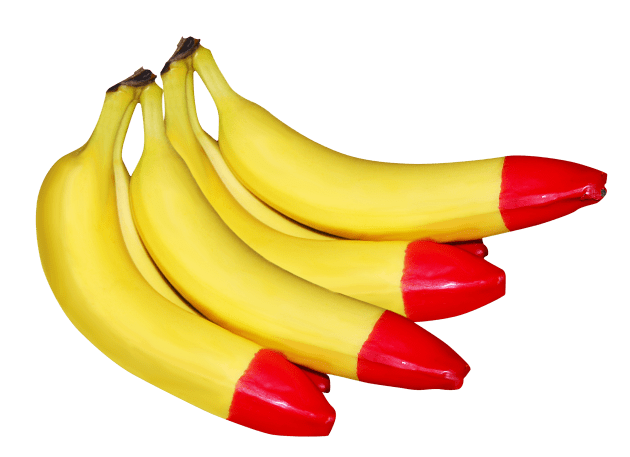A shake-up of Australia’s banana segment is coming, as Perfection Fresh acquires the licensing rights to three varieties. Kim Berry finds out how the sector is set to shift. This article was first published in Food & Drink Business May 2021.
Be prepared for innovation in the banana category is the message from Perfection Fresh Australia CEO Michael Simonetta following the company’s acquisition of Pacific Coast Produce Marketing and the licence for The Red Tip Ecoganic banana.
The Red Tip acquisition follows Perfection’s purchase of licensing rights for two new banana varieties – the Little Gem and Havana Bananas.
“These are fantastic snacking options, particularly for children looking for a small, healthy energy boost, and fit perfectly in a lunchbox.
“We see this as a huge opportunity to grow the category and restore value to bananas. Perfection Fresh is continuing to do what we do best – identify unique varieties and product experiences that reflect consumer trends. It’s about bringing more choice and premium produce to consumers,” Simonetta tells Food & Drink Business.
“Our scale and ability to market to consumers gives these three varieties a greater chance of success as a differentiated offer,” he says.
The red tip
The Red Tip Ecoganic banana was developed by Frank and Dianne Sciacca in the late 1990s. Their Ecoganic farming methods set out to minimise the damage being done by conventional growing practices in Far North Queensland, particularly the degradation and decline of soil health and that of the Great Barrier Reef.
Frank Sciacca says they are thrilled to be working with Perfection Fresh. “This will take our patented farming system to new heights, which will benefit consumers and the environment.”
Ecoganic farming is designed to farm in harmony with nature rather than relying on (synthetic or organic) chemicals, to grow a banana slowly and sustainably.
After growing disillusioned with the amount of fertiliser and chemicals being used on his farm, Sciacca made a decision to investigate other farming systems. The most obvious alternative was organic, but even that would not deliver the environmental outcomes he wanted to achieve in terms of building up the soil, protecting the waterways and maximising the input of insects and animals.
For two years, he researched technical data and research on banana farming practices, soil biology, structure and health, and ingredients in organic and synthetic products used in pest management.
For Sciacca, it was about creating an ecosystem that would mimic the way nature intended bananas to be grown, and to not force feed for yield. The goal was to find a way for the bananas to grow in balance with the soil’s capacity to grow food naturally.
Of course it also had to be financially viable. The result was to change his entire approach to farming from the ground up. Along with the soil and crop, Sciacca wanted all creatures in the field – organisms, insects, reptiles and birds – to help grow the crop.
There were some significant crop losses due to pest damage in the early stages, but Sciacca persevered.
Today, the grower group is made up of six family-owned farms with more than 1000 acres of Ecoganic Bananas, claiming to grow bananas with the least intervention of any farming system in the world.
The bananas are harvested by hand and then washed by hand, with discharged water, then filtered and sent to a settling pond, which supports aquatic life, birds and other animals.
The fruit is then dipped in the wax so its Ecoganic origins can be identified in the shops.

Simonetta says, “The Red Tip Ecoganic is a banana that tastes like a banana should, sweet and creamy with well-rounded flavour.
“The banana category has lacked innovation in Australia and we plan to change that by bringing more choice for consumers in terms of size, taste, and sustainability.”
Simonetta says there are plans to expand Ecoganic farming to other crops in its portfolio.






